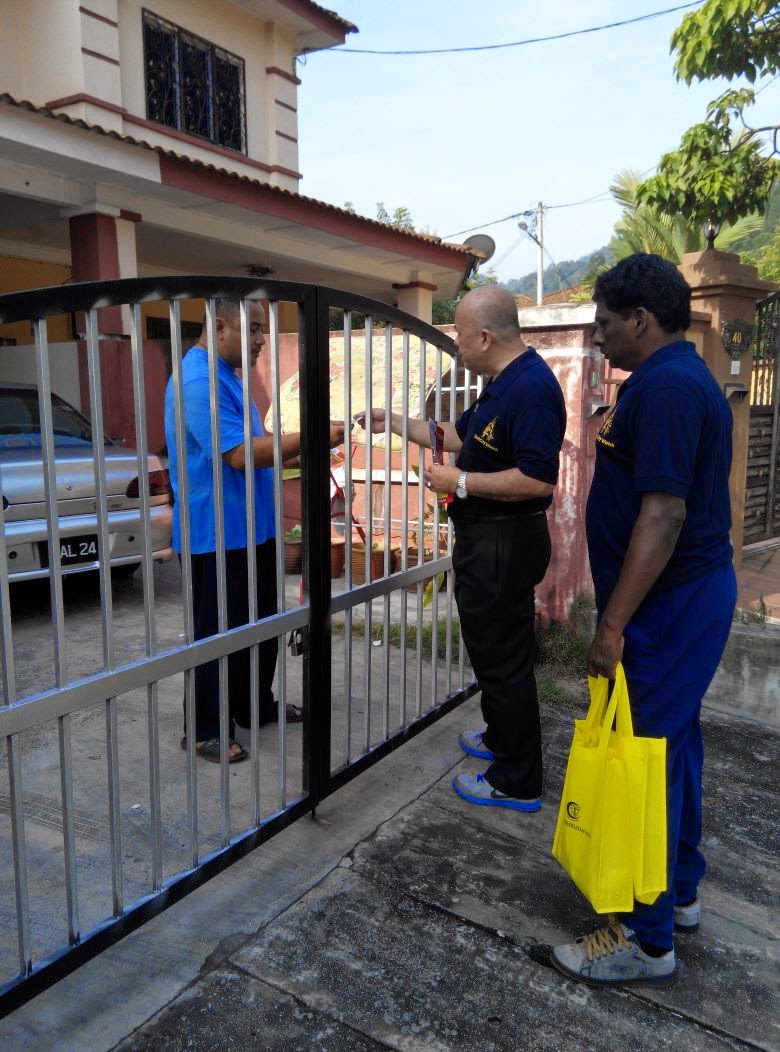WHEN homemaker Tho Yit Ngor rescued a pregnant stray dog wandering outside her house three years ago, little did she know that she would be the owner of three generations of white mongrels.
“The dog was wandering outside my house for days with a bulging belly and it looked like it was in pain as it was about to give birth.
“I decided to bring it into my house compound so that it could give birth safely,” said the 48-year-old.
Months after the dog Tho rescued had given birth to a female puppy, the puppy ran out of the house when the gate was left opened.
“I was worried that I lost the puppy for good, but soon after, it found its way home.
“I did not know that it became pregnant as well after that little adventure until a few months after.
“The puppy gave birth to a female and I decided that it is time I brought them to be spayed because I do not have the capability to care for more than three dogs should the incident repeat itself,” she said, adding that both of her children were all grown up and working outstation.
She said that despite having to keep three dogs, she was reluctant to give them up because she had grown very fond of all of them.
Accompanied by her husband Bok Pin Chiang, 55, Tho was among the many good Samaritans who were present at the Track, Neuter, Release (TNR) programme organised by the Ipoh Society for the Prevention of Cruelty to Animals (ISPCA) held at Dewan Orang Ramai Gunung Rapat recently.
Fellow pet owner Wong Foong Chew saved seven stray puppies who were roaming the streets in Tanjung Rambutan recently.
“I gave four of them away and now I am keeping two females and one male.
“Caring for them is like caring for children, it is very tiring and expensive.
“So I have decided to bring them here to prevent my pets from giving birth to more puppies,” she said, adding that she was currently spending around RM400 a month on her mongrel puppies.
At the programme, ISPCA president Ricky Soong advised those who wish to rescue and keep stray animals to spay or neuter them.
“This step is vital to control the population of strays in the city to prevent them from causing problems for the society.
“The overpopulation of stray animals, especially dogs, would cause problems such as garbage bags lying open on the road, someone getting bitten or the spreading of fleas and diseases.
“By having them spayed or neutered, they can still continue living on the streets without facing threats of being shot or dumped at the city’s outskirts,” he said.
Soong said many dogs and cats are able to get pregnant when they are only six months old.
“Just imagine, if these 25 animals here at the programme were to reproduce on the streets, there would be more than 200 of them added to the stray population within half a year.
“And after a year, this number can quickly grow to more than 2,000.
“Thus, I strongly encourage people who feed strays to go the extra mile of having them neutered,” he said.
Soong added that the TNR approach has been long adopted by Germany, but it took them around 40 years to successfully reduce the stray population in their country by 90%.
“Today’s effort is only the very first step for Ipoh and I hope that the Ipoh City Council will soon agree to adopt this method for the betterment of the stray population in the city,” he said.
On the overcrowding of animals at the shelter, Soong said the number of cats and dogs has been reduced from 280 and 220 respectively within the last eight months.
“This is because some of the dogs died of old age, while some have been adopted.
“Even so, we are still at our limit of taking in more animals and we are now aiming to educate people on the importance of spaying and neutering them instead,” he said.
Also present was the Malaysian Kennel Association Perak branch president Lau Yit Meng, who advised pet lovers not to buy pedigree breeds on impulse.
“We have had cases where pet owners could not afford their pets’ medical expenses, so they chose to abandon them on the streets.
“ISPCA has even rescued a few Siberian Huskies on the streets before and the diseases they had would result in treatment costs of more than RM1,000.
“Keeping a pet is a long-term responsibility and one should ensure that they are financially and physically capable before getting a pet,” he said.
The TNR programme saw to the spaying and neutering of 21 dogs and four cats, all of which were brought in by their respective owners.
The owners were only charged half price for each pet, which was RM50, as the remaining costs were subsidised by ISPCA.

































